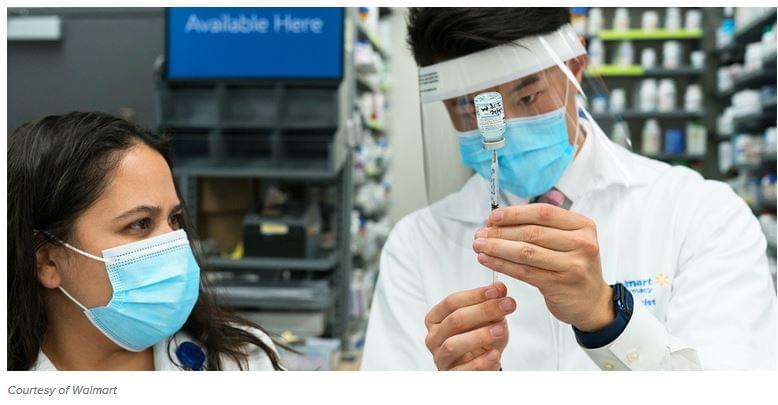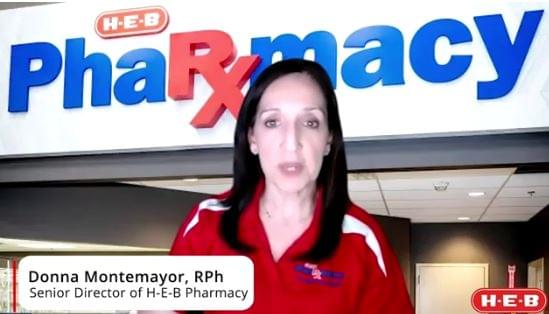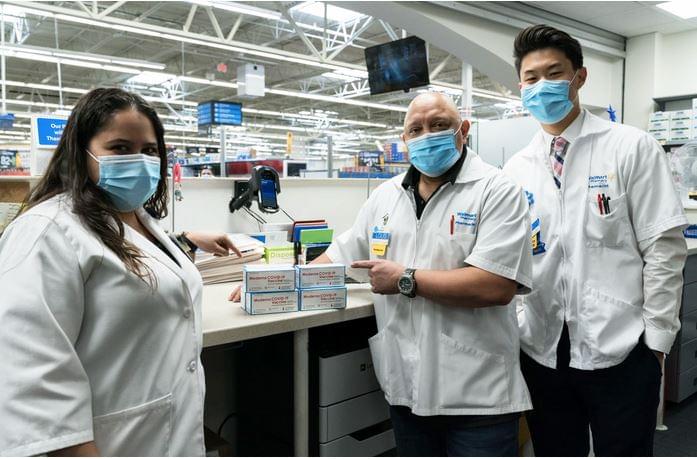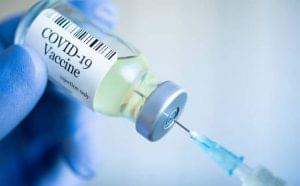Grocers start administering COVID-19 vaccines to selected groups
Grocery chains including Albertsons, H-E-B, Hy-Vee and Walmart have started administering COVID-19 vaccines to high-priority recipients as the food-retailing industry gears up for a large-scale rollout of inoculations against the disease during the coming months. The United Food and Commercial Workers Union is urging the chains to vaccinate their frontline employees in the next phase.

Based on Grocery Dive weekend issue retailers have been taking various approaches to distributing the limited doses they are receiving during the start of the first phase of the COVID-19 vaccine rollout despite adhering to the same set of government-issued guidelines spelling out how the shots should be allocated. The retailers are initially giving vaccines to people in Phase 1a of the Centers for Disease Control and Prevention’s distribution plan, which limits the shots to healthcare workers and residents of long-term care facilities.
10 doses in a vial
Each vaccine vial provides 10 doses and all of the doses in a batch must be used within a few hours after the vial is opened. Per the government guidelines, providers can give any remaining doses to people who fall within the next priority group in which food and retail frontline workers are.
Who get the first shots?
Hy-Vee opted to provide the first doses it secured to staff and residents of a long-term care facility in Fairmont, Minnesota, on Dec. 29. Hy-Vee staff are set to return to the facility to administer the required second dose of the vaccine 28 days later.
H-E-B, meanwhile, gave the first doses it received to community healthcare providers and indicated that it would offer unused doses to people in Phase 1b rather than let them spoil. The company uses an online tool to schedule vaccinations that is currently inactive until it receives more doses.

Albertsons kicked off its vaccine-distribution effort on Dec. 18 by administering shots at a clinic in Alaska staffed by Carrs Safeway pharmacists, the grocer said. Going forward, the retailer plans to distribute vaccines at in-store pharmacies as well as sites elsewhere in communities it serves.
Walmart is taking a different approach. The retailer said it is providing the first doses of the vaccine it receives to its pharmacists because they will be responsible for administering shots to other people. The first Walmart worker to receive a shot was a pharmacy clinical service manager in New Mexico. Walmart is also preparing the 5,000+ pharmacies at Sam’s Clubs and Walmart stores to be ready when the time comes to administer to essential workers, first responders and older Americans in the next priority phases.

Other food retailers, including Kroger, Publix and Ahold Delhaize, have also signed up with the federal government to administer COVID-19 vaccines.
When is the food and retail frontline workers’ turn?
Grocery workers are among the “frontline essential workers” included in the next phase of the government inoculation plan, but it remains unclear when vaccinations will be made available to that segment of the population.
The United Food and Commercial Workers Union (UFCW), which represents about 1.3 million food and retail workers, is pressing grocers to ensure that people who work in grocery stores are able to access COVID-19 shots as the nation moved into the next phase of vaccine distribution.
“As the largest union for America’s grocery workers, UFCW is calling on grocery CEOs to immediately work with governors to guarantee access to the vaccine for their frontline employees. Protecting our country’s frontline food workers is essential to keeping our communities safe and stopping future outbreaks in these high-exposure workplaces,” UFCW International President Marc Perrone said in a Jan. 1 statement.
Related news
HPAI vaccine bank at the service of epidemic prevention
🎧 Hallgasd a cikket: Lejátszás Szünet Folytatás Leállítás Nyelv: Auto…
Read more >MÁOK and Nébih warn about the importance of protection against rabies
🎧 Hallgasd a cikket: Lejátszás Szünet Folytatás Leállítás Nyelv: Auto…
Read more >Inaugurated Nébih’s new animal house and high security research laboratory
🎧 Hallgasd a cikket: Lejátszás Szünet Folytatás Leállítás Nyelv: Auto…
Read more >Related news
How Coca-Cola plans to build more billion-dollar brands
🎧 Hallgasd a cikket: Lejátszás Szünet Folytatás Leállítás Nyelv: Auto…
Read more >








